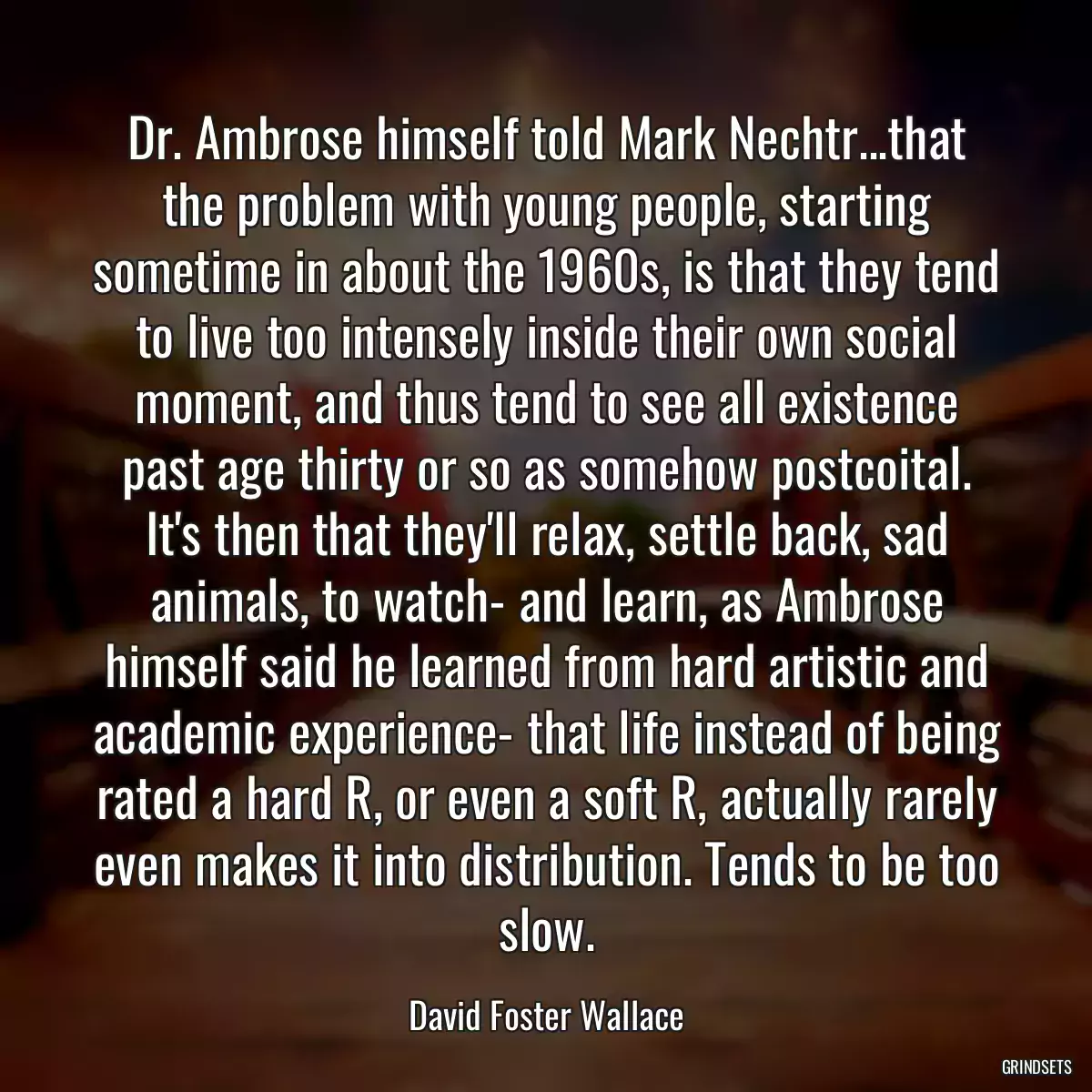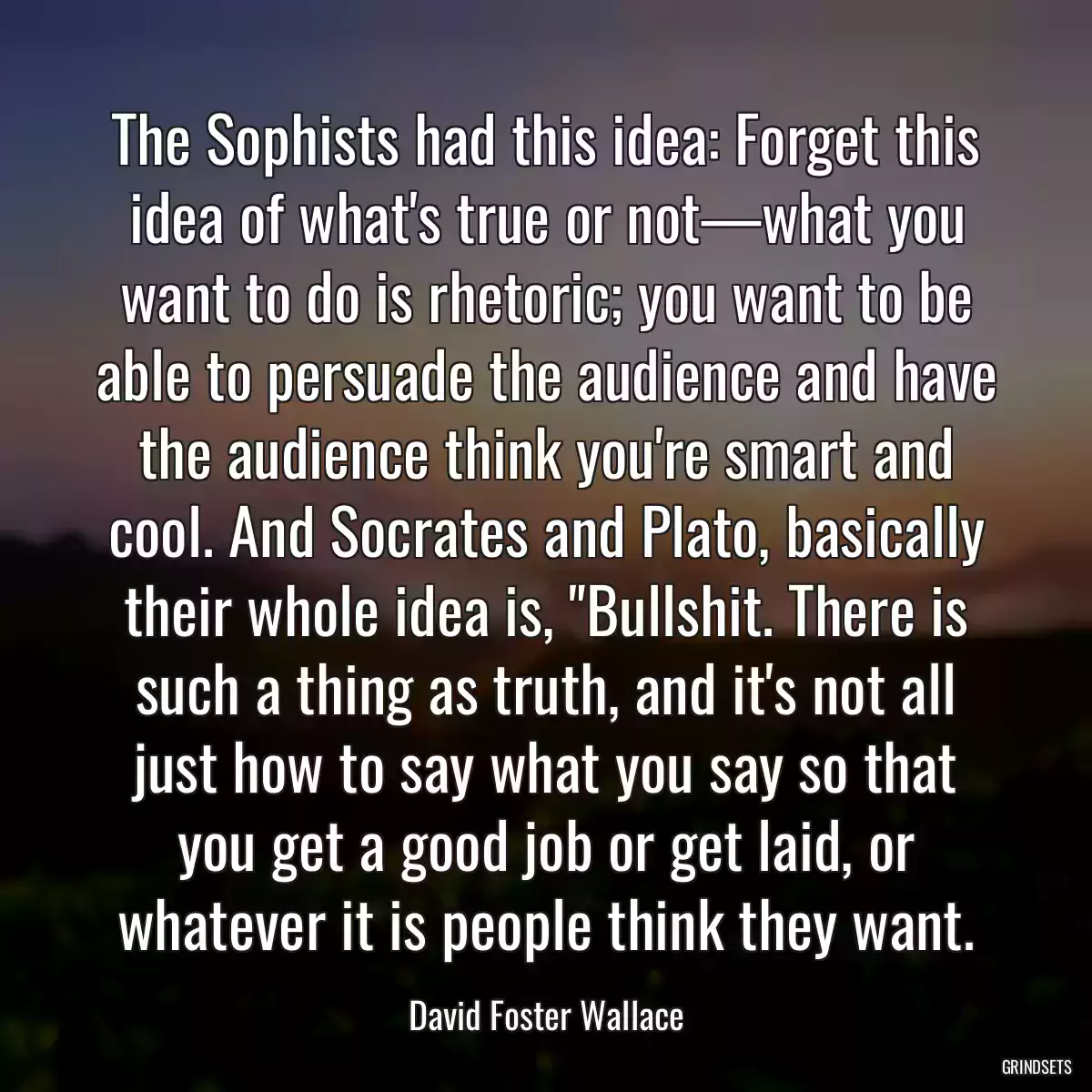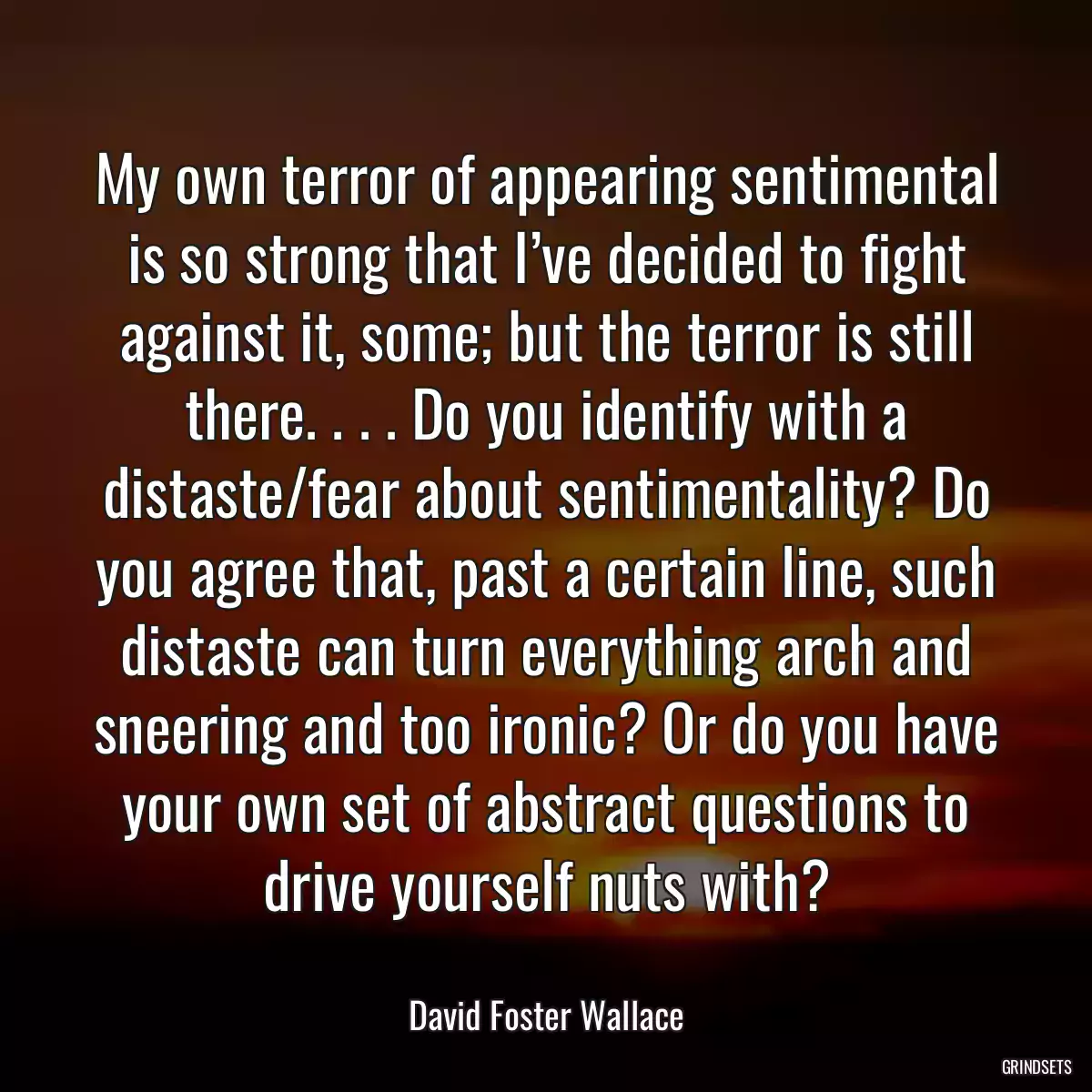
Dr. Ambrose himself told Mark Nechtr...that the problem with young people, starting sometime in about the 1960s, is that they tend to live too intensely inside their own social moment, and thus tend to see all existence past age thirty or so as somehow postcoital. It's then that they'll relax, settle back, sad animals, to watch- and learn, as Ambrose himself said he learned from hard artistic and academic experience- that life instead of being rated a hard R, or even a soft R, actually rarely even makes it into distribution. Tends to be too slow.

